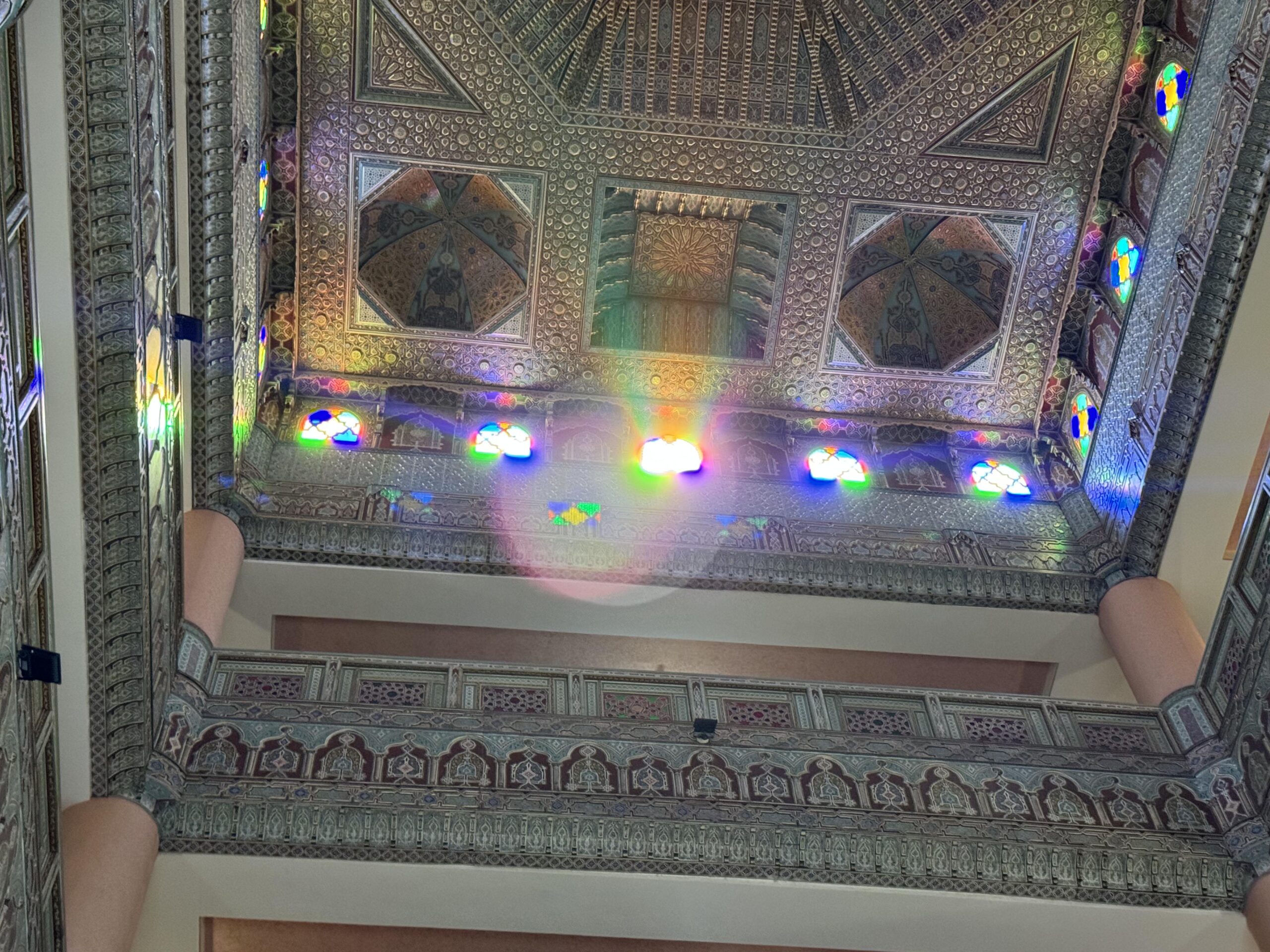(Title image: The ceiling of a hotel in Marrakech, Morocco. I took the photo personally.)
I spent a week in Morocco for a conference, which was about a very peculiar field in engineering science. The agenda of the conference was far less impressive than the Moroccan culture and architecture. The only spotlight was a professor on the conference committee. He was remarkably knowledgeable and authoritative in his field; but for audience outside his field such as me, he was self-righteous and absent-minded.
“You should fit in the stereotype!”
Two days after I gave a talk to the attendees, I bumped into him in the corridor outside the lecture theatre. Apparently, he was unsatisfied with by my dress and language in the talk. He spoke to me in a reprimanding tone: “You spoke like a politician, a talk show host! Have a look at other researchers from your country! They spoke simple English and sounded rigorous and scientific!”
Here, I must admit that, though my fellows are good at taking language tests, most of them are incapable of presenting their works and theories in a fluent and persuasive rhetoric; they couldn’t introduce their ideas without reading the pre-written texts on each slide. This professor (together with quite a few from other European countries on the scene) regarded awkward language ability among my fellows as a symbol of “pretty PhD students” and “diligent scientist personality”. Is that a complement? Ostensibly yes, but genuinely no. As these “pretty PhDs” cannot use English fluently, professors in the Engineering Department can exploit these pretty PhD students: anyway, when your language skills are poor, you do not have solid access to pivotal information or resources in that country; and that leaves room for manipulation and exploitation.
I am crystal clear about his uncharitable minds; as my style of speaking and presentation are not moulded in the stereotype customised for my ethnicity, I became an offensive figure to the self-esteem of a few engineering professors, particularly this one on the conference committee. Just look at what he said to me!
Attempting to command a pre-recorded video
One of the researchers did not manage to come to the conference for his presentation. As an alternative, he recorded a 15-minute video presenting his work and got it played in the conference. When the video presentation entered the 14th minute, this hosting professor shouted to the screen: “You only have 1 minute left to present!”
The sleepy audience suddenly burst into wild laughter.
I once saw a question on Reddit: why most conflicts between PhD students and professors erupt in engineering departments, not business, humanities or natural sciences departments? I think these two little personal experiences can partially demonstrate that scholars submerged in technical concepts 24/7 can behave and think like androids. Then, why here shouldn’t be conflicts between androids and human beings?
P.S.
My supervisors are physicists. So, even if there are conflicts, we can resolve them by arguing with logics and facts. That’s it. Had I supervised by several scholars in engineering, I might have quitter my PhD study two years earlier.
